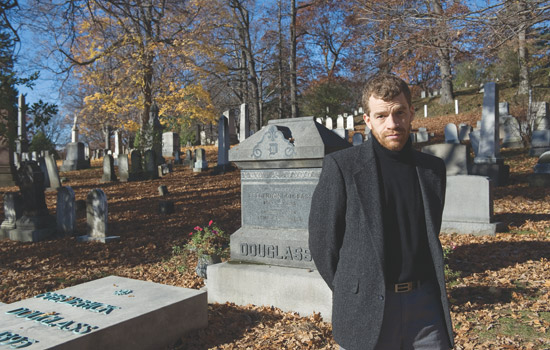Professor brings history lessons to life
Summer workshops unveil Rochester history to energize a new generation of social reformers
A. Sue Weisler
RIT history professor Richard Newman is spearheading a summer workshop series that will better educate history teachers on the influence of 19th century social reform movements on modern politics, culture and society.
As our nation celebrates its 235th year of liberty and justice for all, it’s fitting that local historians are sharing the impact of Rochester’s rich place in American reform history with educators from around the country.
“Abolitionism, Women’s Rights and Religion on the Rochester Reform Trail,” a National Endowment for the Humanities Landmarks Workshop, provides a unique opportunity for 80 schoolteachers from around the nation to literally follow the path of Rochester’s history makers. Co-directed by Richard Newman, professor of history at Rochester Institute of Technology, and Joe Torre, associate professor of history at The College at Brockport, the two workshop sessions run July 10-16 and July 17-23 and include daily expert lectures and discussions at The Strong’s National Museum of Play as well as field trips uncovering the reform struggles of famous Rochesterians Susan B. Anthony, Frederick Douglass and Charles Finney.
Participants will follow the route of Charles Grandison Finney’s religious revivals along the Erie Canal, see the Frederick Douglass Papers at the University of Rochester and study women’s suffrage struggles at both Seneca Falls and the Susan B. Anthony House. The cycle will be completed when these schoolteachers return to the classroom and pass the lessons of Rochester history along to their students.
“We need to make sure that today’s students understand that modern conceptions of diversity and equality came out of past reform struggles,” says Newman. “And no American city played a more important role in 19th century reform than Rochester. By taking teachers to the area historic sites associated with anti-slavery struggles, women’s rights reform and religious revivalism, we hope that educators from around the country will better appreciate Rochester as a center of American reform movements.”
The workshops are sponsored by the National Endowment for the Humanities’ We the People program and funded by a $156,000 grant.














